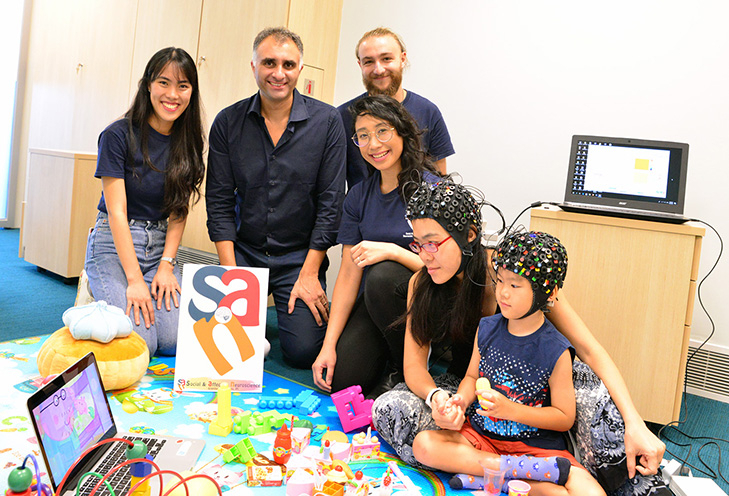
Nanyang Technological University (NTU), in collaboration with researchers from the US' National Institute of Child Health and Human Development and Italy's University of Trento and University of Padova, has conducted a study which revealed the effects of the stress due to parenting in the brains of both mother and children.
Experts earlier stated that almost every parent experiences this situation to some extent regardless of their educational levels and the income and social support available to them.
"Excessive parenting stress can block maternal sensitivity, lead to reactions that punish the child and negatively affect the parent-child relationship for the long term," researchers said.
The researchers from NTU analysed the brain activity of 31 pairs of Singaporean mother and child, who are aged around three.
For the research, the team used functional Near-infrared Spectroscopy (fNIRS) caps to measure brain activation based on blood concentration levels in the brain as well as a recently developed method called tandem hyper scanning that simultaneously records the brain activity of two people.
As part of the pre-test preparation, involved mothers answered a questionnaire that aims to measure parenting stress. Later, the mother-child pairs wore the fNIRS caps while the child sitting on the mother's lap, watching animation clips from Brave, Peppa Pig and The Incredibles together.
During the research, the team found that those who reported a high level of parenting stress had less synchrony in brain activity with their child compared to those mothers who reported lower levels of parenting stress.
NTU mentioned that for synchrony the research team monitored the prefrontal cortex, which is the cerebral cortex covering the front part of the frontal lobe that is associated with the ability to understand others' point of view.
So, when both parent and child show highly similar brain activity in the same brain areas, it suggests that both are highly tuned in to each other's emotional state.
The lead author of this study, Assistant Professor Gianluca Esposito, from the School of Social Sciences who leads the Social and Affective Neuroscience Lab (SAN-Lab) at NTU, said this research which was published in Nature Scientific Reports, showed that "parenting stress may very well weaken mother-child communication early in the process of social interaction."
"Our observations likely stem from the stressed mother's reduced ability to share her child's perspective. This inability to appreciate the child's viewpoint may reduce the quality of parental engagement and undermine the mother-child relationship in the long run."
An @NTUsg study of 31 mother-child pairs from Singapore shows that #parentingstress may weaken mother-child #communication early in the process of social interaction, as stressed mothers are less able to share their child’s perspective. @SciReports. https://t.co/z60ZOF3Wth pic.twitter.com/V1pyyjeuSZ
— NTU Singapore (@NTUsg) August 29, 2019









